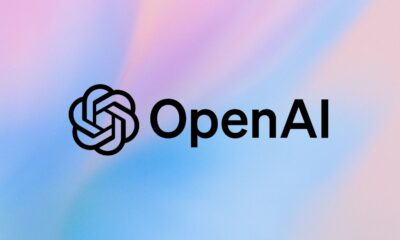AI
OpenAI launches two new open-source AI models
This marks OpenAI’s first major open release since GPT-2 in 2019.

Just a heads up, if you buy something through our links, we may get a small share of the sale. It’s one of the ways we keep the lights on here. Click here for more.
OpenAI has launched two new open-access AI models, called gpt-oss-120b and gpt-oss-20b, marking its first major open release since GPT-2 in 2019.
These models are now available for free on Hugging Face, a popular platform for AI developers.
OpenAI says these models are state-of-the-art compared to other publicly available AI models.
The larger model, gpt-oss-120b, can run on a single high-end Nvidia GPU, while the smaller gpt-oss-20b can work on a typical laptop with 16GB RAM.
Although they aren’t as powerful as OpenAI’s top-tier models like o3 or o4-mini, they still outperform many leading open models from companies like DeepSeek and Qwen.
OpenAI used advanced training techniques such as reinforcement learning and a method called mixture-of-experts, which allows the models to only activate certain parts of their network at a time.
This makes them more efficient and capable of reasoning through problems using a chain-of-thought process.
However, the models are text-only, meaning they can’t handle images or audio.
Unlike most of OpenAI’s commercial models, these new models are open-weight and come with an Apache 2.0 license, allowing anyone, even businesses, to use and monetize them freely.
However, OpenAI has not shared the training data, mainly due to legal concerns about copyright.
These models are more prone to hallucinations (incorrect or made-up answers) than OpenAI’s private models.
For instance, in tests about people-related knowledge, gpt-oss models gave false answers in nearly half the cases, compared to just 16% from one of its closed models.
The release comes amid growing pressure from both the US government and Chinese AI labs.
CEO Sam Altman acknowledged that OpenAI may have been too closed in the past and now wants to support more open development aligned with democratic values.
Although these models are a major step forward, the AI community is now watching for upcoming releases from competitors like DeepSeek R2 and Meta’s new AI lab.
Is OpenAI’s shift toward open-source models a genuine commitment to democratizing AI, or just a strategic response to government pressure and competition? Will these more accessible models help level the playing field for smaller developers and researchers? Tell us below in the comments, or reach us via our Twitter or Facebook.




























